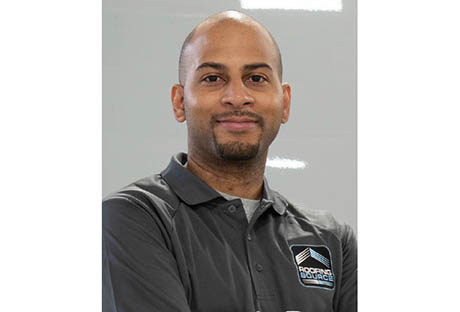— By Josh Agosto —
Why HVAC/R maintenance is essential to optimize efficiency, protect ROI and mitigate costs.
Many businesses only call a contractor when their HVAC/R (heating, ventilation, air conditioning and refrigeration) systems aren’t functioning properly, despite these units requiring routine maintenance and occasional repairs. Neglected HVAC/R equipment not only increases unnecessary energy consumption but significantly heightens the risk of fires and gas leaks. By understanding why routine maintenance of HVAC/R units is a leading best practice, one can ensure optimal efficiency, protect the organization’s investment, and avoid costly emergency repairs.
Why HVAC/R Maintenance is Vital
• Preserve the unit’s manufacturer warranty. In many HVAC/R warranty agreements, if maintenance is not documented, the manufacturer’s warranty is voided. The units must be registered with the manufacturer as well as installed properly. By completing maintenance, businesses can ensure their HVAC/R units remain covered in case of malfunction, reducing the financial burden in the case of a repair or replacement.
• Avoid emergency repairs. When HVAC/R equipment breaks, it typically results in emergency service, which tends to be expensive and disruptive to operations. Although some breakdowns are unavoidable, many issues can be prevented through proper maintenance and planning.
• Prevent carbon monoxide poisoning. The heat exchanger is a vital component of the heating system considering it is constantly expanding and contracting. Due to its constant use, the component may crack, creating the perfect scenario for a carbon monoxide leak. Routine inspections will ensure the heat exchanger is intact, creating a safe atmosphere for employees and customers.
• Mitigate the chance of a fire. Unchanged HVAC/R filters and faulty electrical components can lead to fires. A poorly maintained blower motor can accumulate dirt, overheat and potentially ignite a fire. Ensuring professional periodic attention to these key components is necessary to prevent HVAC/R-related fires.
• Save money on energy bills. Routine maintenance ensures the units are operating at optimal efficiency which translates to savings in monthly energy bills for both cooling and heating.
• Keep clients and employees comfortable. If an HVAC/R unit malfunctions, it can cause the air conditioning or heating to stop entirely. This can disrupt a business’s operations, leading to unhappy customers and employees. By getting amperage readings and checking refrigerant levels, issues can be identified before failure, providing a comfortable temperature inside the building.
Extend the lifespan of HVAC/R units. With proper maintenance, HVAC/R units can last up to 20 years. The leading cause of premature unit replacement is neglecting maintenance. By scheduling a visit from an HVAC/R professional, units will have longer lifespans. HVAC/R systems are a significant investment and should be protected.
While recognizing that HVAC/R maintenance is a vital element to achieving peak efficiency of systems, understanding what is included in a proper maintenance visit is just as important. Below is a list of items HVAC/R contractors should complete each inspection.
Necessary Components of HVAC/R Maintenance
• Changing of filters. HVAC/R system filters increase air quality by removing dust, pollen and other small particles, preventing them from being recirculated. Filters also protect against larger particles that could damage HVAC/R systems. Over time, a neglected filter will let particles pass through and therefore accumulate inside the units which can affect the evaporator coil. While this can increase energy consumption, it can also lead to catastrophic damage like a fire. Ensuring filters are changed regularly is one of the easiest ways to prevent the breakdown of HVAC/R units.
• Maintaining the blower motor. Within HVAC/R units, the blower motor is used to circulate air within the building. During proper maintenance, an HVAC/R technician will wipe down the blower housing and take amperage readings to confirm the motor isn’t currently at risk for overheating.
• Testing of electrical components. HVAC/R equipment is filled with electrical components that need to be tested and visually inspected. A trained HVAC/R technician will address loose connections and inspect components for signs of failure such as fraying, pitting and corrosion. This is key to preventing an abrupt disruption to the future function of the HVAC/R units.
• Inspecting the heat exchanger. A combustion analysis and visual inspection should be performed. Safety switches, such as high limit and rollout switches, should never be bypassed as temporary repairs. Those guardrails are designed to reduce the chance of fire and or carbon monoxide poisoning by monitoring and shutting off the system when unsafe situations arise.
• Testing for gas leaks. During installation and any gas-related repairs, an HVAC/R system should be checked for gas-related leaks. Testing should be performed by a powered gas leak detector for bubbles. Failure to follow these steps by an HVAC/R contractor can lead to both fires and bodily harm, including carbon monoxide poisoning.
Businesses should implement comprehensive biannual inspections done by a licensed HVAC/R contractor and not untrained, in-house maintenance teams. Neglecting maintenance can result in avoiding repairs that cost thousands of dollars. Considering these units are a significant investment, maintenance should be a top priority.
— Josh Agosto is a Chicago-based HVAC/R technician at RoofingSource, a full-service, self-performing roofing company that also provides grease containment, HVAC maintenance/repairs, fan cleaning and comprehensive roof inspections. Learn more at www.roofingsource.com/retail.
